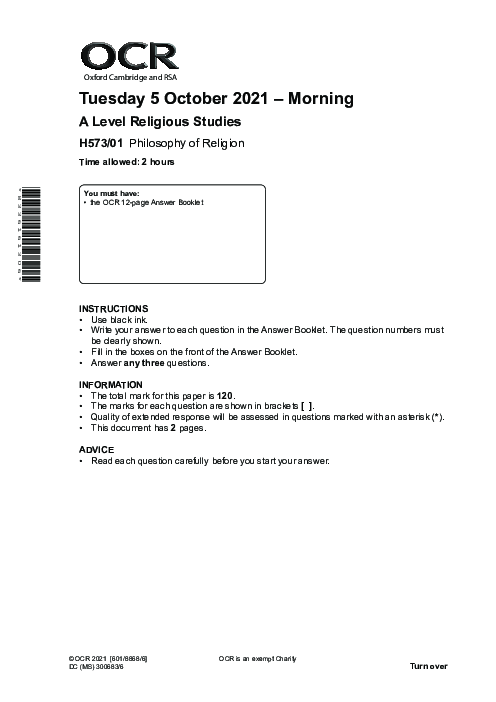Religious Studies H573/01 November 2021
omer uner
1. Religious language: Tillich’s symbolic theology; depth of ultimate concern; comparison with analogy, via negativa; criticisms of vagueness and subjectivity
2. Divine omnipotence: classical theism vs process theology; paradox of the stone; logical vs actual possibility; compatibility with omniscience, benevolence, and free will
3. Ontological argument: Anselm’s deductive reasoning; Gaunilo’s perfect island parody; critique of defining existence into being; strengths and limitations of a priori arguments
4. Soul theories: Plato’s dualism, immortality, and Forms; Aristotle’s hylomorphism and body-soul unity; coherence, empirical basis, and metaphysical depth; influence on Christian thought
5. Emphasis on metaphysics, epistemology, philosophy of language, and theology; structured evaluation of classical and modern philosophical debates
6. 40-mark essay-based exam; depth of analysis, clarity of argument, and reference to key philosophical figures and doctrines essential
See More Paper 1 8 months ago
Religious Studies (H573) Subject directory
All resources in one place
Related Past Papers
Related Tutorials
Crash report
